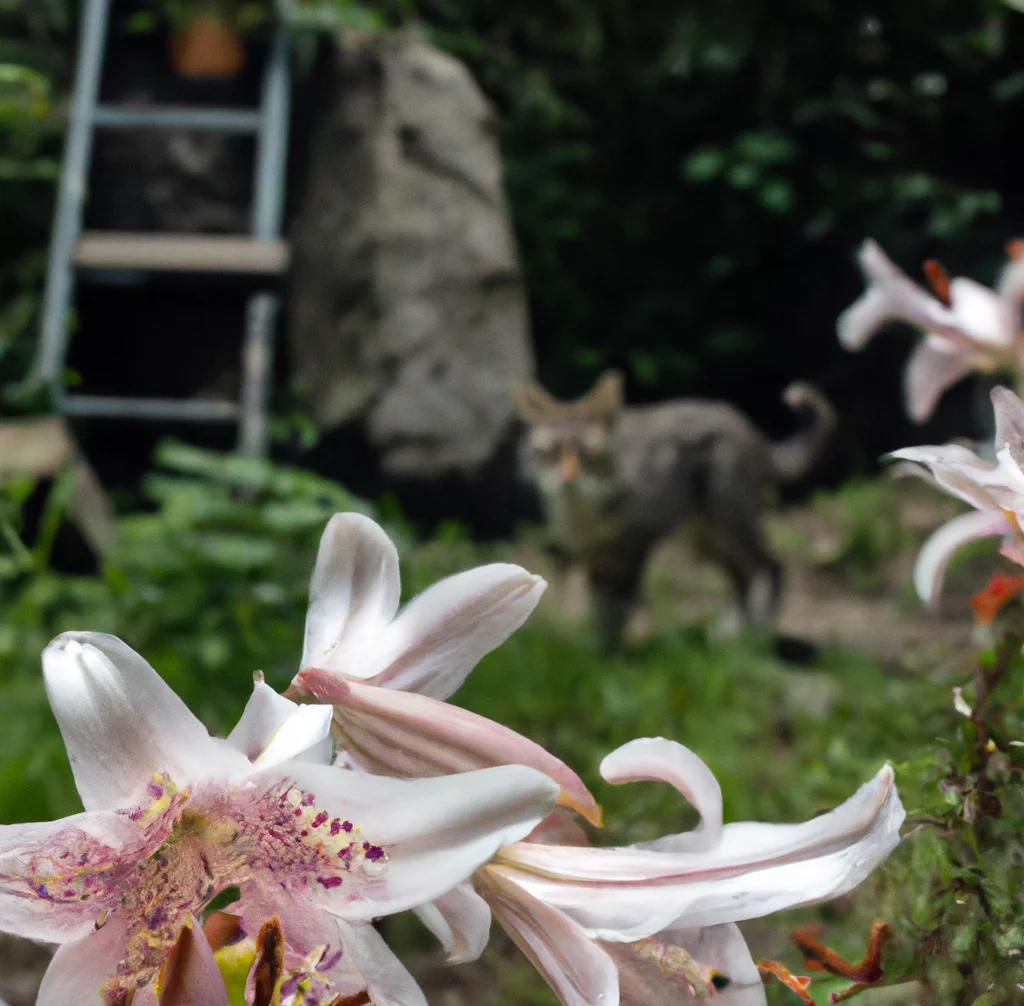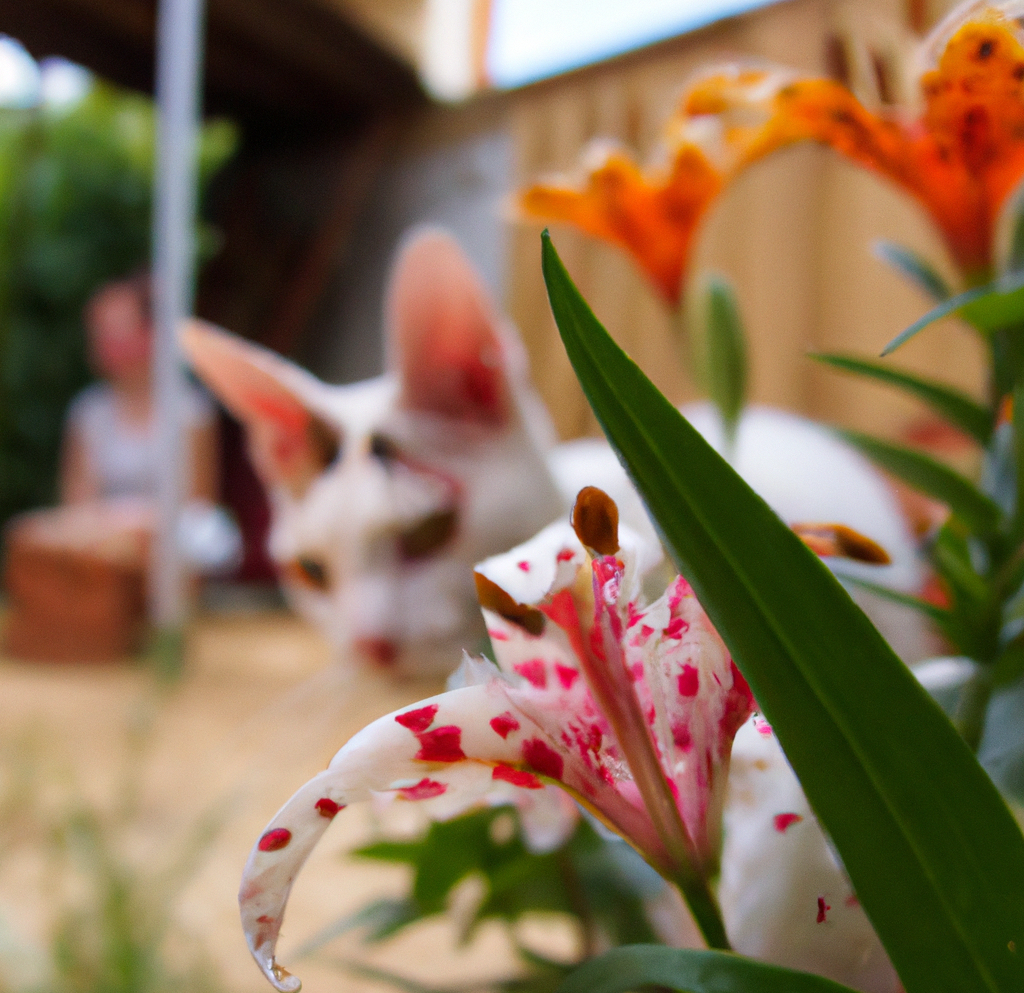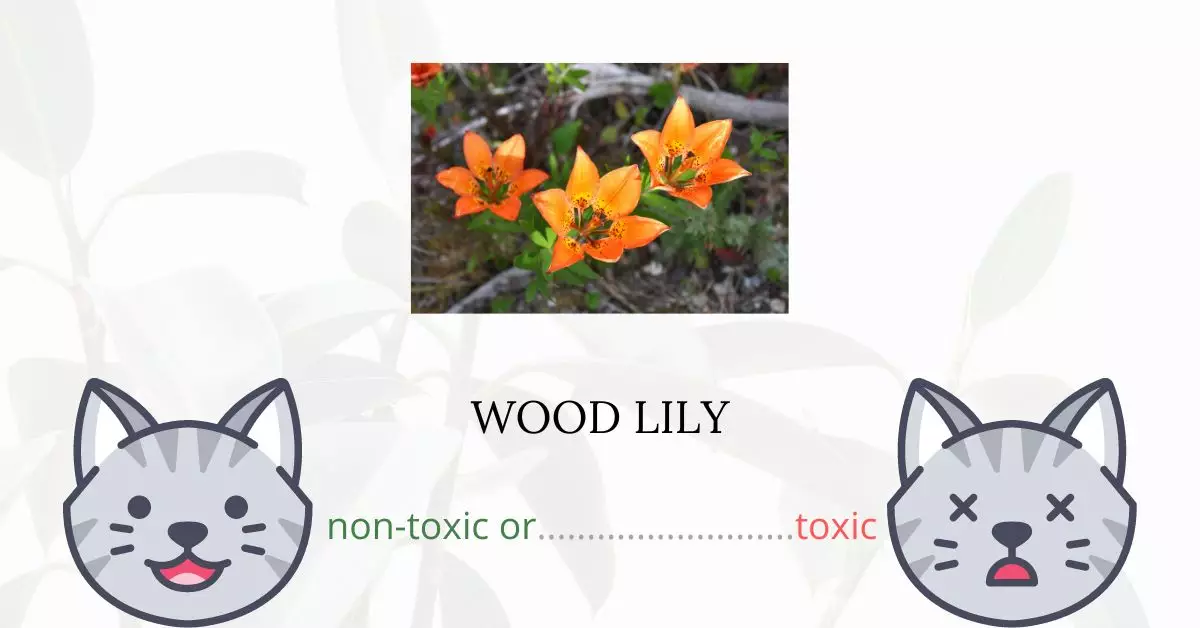Wood lilies are indeed highly toxic to cats, often leading to severe poisoning, which can be fatal if not treated promptly. In households and gardens where cats are present, it is strongly advised not to cultivate or retain these plants or position dried flowers where cats might come into contact with them, as even indirect exposure can lead to ingestion of the toxic pollen during grooming. Immediate veterinary attention is crucial in cases of suspected ingestion.
This article is a culmination of meticulous research and collaboration with a team of experienced Doctors of Veterinary Medicine (DVMs). Their expertise and contributions have enriched our understanding of the potential risks posed by various plants, including Wood Lilies, and their impacts on cats, enabling us to deliver precise and current information. Additionally, to ensure the reliability and accuracy of the information provided, we have referenced high-authority websites such as ASPCA and PetMD for every plant discussed.
Clinical Signs of Wood Lily Poisoning in Cats

Wood Lily poisoning in cats induces a series of detrimental symptoms, typically developing swiftly, often within six to twelve hours following exposure. Each symptom is a manifestation of the internal damage and distress caused by the toxic elements of the plant. Below is a detailed overview of the clinical signs and the underlying reasons they occur in cats upon contact, inhalation, or ingestion of Wood Lilies.
- Vomiting: It’s a primary response to expel the ingested toxins. The cat’s body attempts to rid itself of the poisonous substances, causing severe and frequent vomiting.
- Loss of Appetite: The ingested toxins can disrupt the normal functioning of the digestive system, leading to a decreased desire to eat, due to nausea or abdominal pain.
- Lethargy: The toxins from the wood lily can affect the cat’s metabolic and organ functions, causing a lack of energy, weakness, and overall lethargy.
- Dehydration: Persistent vomiting and lack of fluid intake due to loss of appetite can result in severe dehydration, causing further complications.
- Excessive Urination or Lack of Urination: The toxins can impact kidney function, leading to either increased frequency of urination as the body tries to eliminate toxins or decreased urination due to kidney failure.
- Disorientation: The absorbed toxins can affect the cat’s central nervous system, inducing signs of confusion and disorientation.
- Inability to Walk: Affected cats might exhibit difficulties in walking due to the impact of toxins on the nervous and musculoskeletal systems, causing muscle weakness or lack of coordination.
- Seizures: The toxic compounds can lead to neurological damage, resulting in uncontrollable muscular activity or seizures in severe cases.
- Ulcerated Gums: Ingested toxins may cause inflammation and ulceration in the oral mucosa, evidenced by ulcerated or inflamed gums.
Recognizing these signs early and seeking immediate veterinary intervention is pivotal in managing wood lily toxicity and mitigating the severe, life-threatening consequences in cats.
First Aid and Treatment of Wood Lily Poisoning in Cats

If your cat is exhibiting potentially fatal symptoms, the veterinarian will initially attempt to stabilize his or her health. Your cat will be given medications to aid with nausea and fluids to help with renal function through IV.
When your cat is no longer in critical condition, the vet will remove any remaining dangerous substances from the stomach. To accomplish this, your vet will induce vomiting in your cat.
Rapid treatment with activated charcoal and/or forced vomiting can limit the amount of poison absorbed. Large volumes of fluid through IV can lessen kidney damage and raise the chances of the cat’s survival.
Recovery from Wood Lily Poisoning in Cats

When lily poisoning is detected early, your cat has an excellent chance of recovery. Poisoning can cause long-term or short-term organ damage in some animals. These disorders can be treated with specific drugs and regular blood tests at your veterinarian’s clinic. Unfortunately, lilies are extremely poisonous, and severe instances can result in major health problems and even death.
Prevention of Wood Lily Poisoning in Cats
Be cautious when purchasing or accepting flower bouquets. Ensure that the bouquet does not include lilies and any other toxic plants that can cause harm to your cats. It is best to do your research and be familiarized with poisonous plants for cats.
If you love plants but have cats at home, check out these lists:





